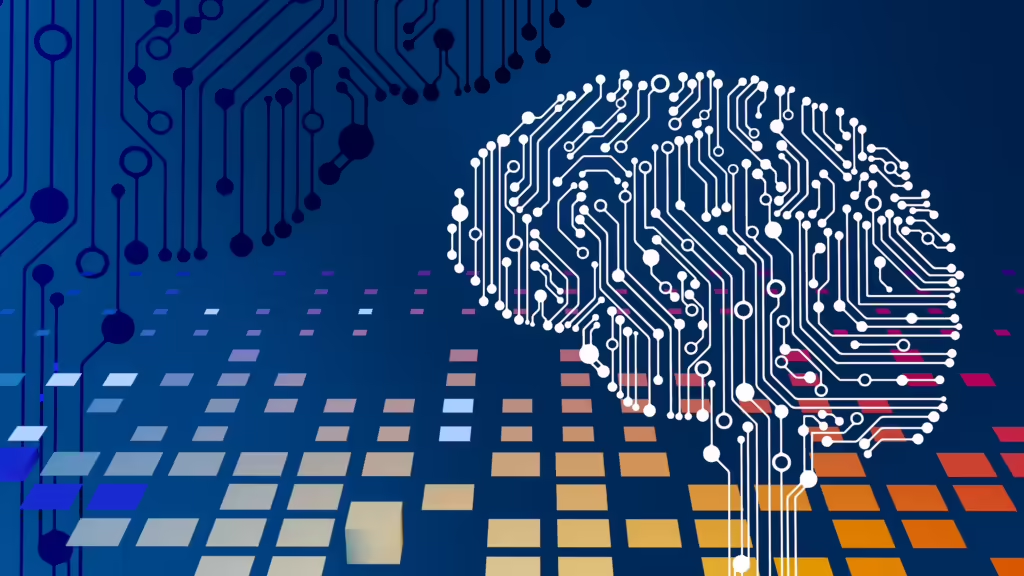Artificial intelligence (AI) is at the forefront of this transformation of how businesses work, offering innovative solutions that streamline processes, reduce manual tasks, and enhance decision-making. In the US, 73% of companies have adopted AI in some areas of their business.
In this article, we’ll explore 10 ways AI is revolutionizing workflow efficiency, providing business owners with actionable insights to optimize their operations.
Top 10 Ways AI is Transforming Workflow Efficiency
1. Predictive Analytics for Proactive Decision Making
Predictive analytics, powered by AI, enables businesses to anticipate trends and make informed decisions based on data. By analyzing historical data and identifying patterns, AI helps companies predict future outcomes, allowing them to proactively address potential issues and capitalize on opportunities. For example, retailers use predictive analytics to forecast inventory needs, reducing stockouts and overstock situations. In the healthcare landscape, predictive models assist in disease outbreak prediction, patient readmission rates, and personalized treatment plans.
Here’s how it works:
- Data Collection: Businesses collect vast amounts of data from various sources such as sales transactions, customer interactions, market trends, and more.
- Pattern Analysis: AI algorithms analyze this data to identify patterns and trends. This analysis goes beyond what humans can easily spot, uncovering insights that might be missed otherwise.
- Future Predictions: Based on the identified patterns, AI can predict future outcomes. For instance, it can forecast sales trends, customer behavior, and market shifts. This allows businesses to anticipate demand and adjust their strategies accordingly.
Informed Decision-Making: With accurate predictions, businesses can make more informed decisions. This might include optimizing inventory levels, tailoring marketing campaigns, or improving customer service.
2. Automating Routine Tasks with Robotic Process Automation (RPA)
Robotic Process Automation (RPA) automates repetitive, rule-based tasks, freeing up human resources for more strategic activities. RPA can handle tasks such as data entry, invoice processing, and customer onboarding with high accuracy and efficiency. In fact, 51% of businesses adopt automation initiatives specifically to boost efficiency. For instance, a financial services company might use RPA to automate loan processing, significantly reducing processing time and errors.
3. Enhancing Customer Interactions with AI Chatbots
AI-powered chatbots are transforming customer service by providing instant, 24/7 support. These chatbots can handle a wide range of customer inquiries, from answering FAQs to processing orders, enhancing the customer experience. Various AI technologies are used here – Natural Language Processing (NLP), Machine Learning (ML), Natural Language Understanding (NLU), speech recognition, contextual awareness and more. Businesses that implement chatbots can ensure prompt responses and improve customer satisfaction, as seen with e-commerce platforms that use AI to assist shoppers.
4. Streamlining HR Processes with AI-Driven Recruitment
AI is revolutionizing human resources by streamlining recruitment and employee management processes. AI tools can screen resumes, schedule interviews, and even assess candidate fit through predictive analytics. This not only speeds up the hiring process but also improves the quality of hires. For example, large corporations use AI to identify top talent efficiently, reducing time-to-hire and enhancing overall HR productivity.
Imagine you’re overwhelmed with a mountain of resumes. AI comes in as a super-fast reader, quickly scanning through all the resumes to pick out the ones that perfectly match your job requirements. It looks for specific keywords, skills, and experiences that fit the role you’re hiring for, saving you a lot of time.
Next, think of AI as a dedicated talent scout. It doesn’t just wait for people to apply; it actively searches job boards, social media, and various databases to find potential candidates with the right qualifications. Even those who haven’t applied directly get spotted by this diligent scout.

5. Optimizing Marketing Strategies with AI
AI enhances marketing strategies by enabling personalization and improving campaign effectiveness. AI algorithms analyze customer data to deliver targeted marketing messages, increasing engagement and conversion rates. Companies can also use AI to optimize ad spend and measure campaign performance in real-time. Brands that leverage AI for marketing see higher ROI and more effective outreach.
AI helps with customer insights. Imagine you have tons of data from customer purchases, social media interactions, and website visits. AI analyzes all this data to find patterns and trends. It tells you what products are popular, what customers are saying about your brand, and what their preferences are. This information helps you understand your customers better and tailor your marketing strategies to meet their needs.
6. Improving Supply Chain Management with AI
AI applications in supply chain management optimize logistics and reduce operational inefficiencies. AI can forecast demand, manage inventory, and optimize delivery routes, leading to cost savings and improved service levels. For example, manufacturers use AI to streamline production schedules and minimize supply chain disruptions, ensuring the timely delivery of products.
7. Boosting Productivity with AI-Powered Tools
AI-powered tools enhance productivity by automating routine tasks and providing valuable insights. Tools like AI-driven project management software can assign tasks, monitor progress, and predict project outcomes. Businesses using these tools report increased efficiency and better project outcomes, as employees can focus on high-value activities rather than administrative tasks.
8. Reducing Operational Costs with AI
The advancement of AI has transformed industries by streamlining operations and optimizing efficiency. This shift has made it increasingly important for professionals to enhance their knowledge to stay competitive in the evolving landscape. Research.com construction management online degree programs offer an excellent opportunity for those in the construction field to gain specialized skills in managing complex projects using cutting-edge technology.
Pursuing an online degree in construction management not only equips professionals with up-to-date knowledge but also helps them understand how AI can be integrated into construction processes, improving project timelines and cost management. This type of education enables professionals to stay ahead in a rapidly changing industry.
9. Gaining Competitive Advantage through AI
Early adoption of AI technologies provides businesses with a competitive edge. AI enables companies to innovate faster, respond to market changes more effectively, and deliver superior customer experiences. Businesses that lead in AI adoption are often industry leaders, showcasing the importance of embracing AI for long-term success.
For example, consider a company developing a new app. AI can help by analyzing user data to identify the most popular features, predict which features will be in demand in the future, and even generate ideas for new features based on user behavior patterns. It can also automate testing and debugging, ensuring a faster and more efficient development process.
10. Addressing Ethical and Privacy Concerns with AI
As businesses adopt AI, it’s crucial to address ethical and privacy concerns. Ensuring ethical AI use involves transparency, fairness, and accountability. Businesses must also prioritize data privacy and compliance with regulations. By addressing these concerns, companies can ensure sustainable and responsible AI adoption.
For instance, if you’re using AI in a customer service application, make sure to inform users that their interactions are being analyzed by AI. Explain how this helps improve service and ensure that their personal information is kept confidential and secure.
By addressing ethical and privacy concerns proactively, you can build a responsible AI framework that respects user rights and fosters trust in your AI applications.
AI is the future
AI is undoubtedly transforming workflow efficiency across various business functions. From predictive analytics to automating routine tasks, AI offers numerous benefits that enhance productivity, reduce costs, and provide a competitive edge. As AI continues to evolve, businesses that embrace these technologies will be well-positioned for future success. It’s time for business owners to explore AI solutions and integrate them into their operations to unlock new levels of efficiency and growth.






